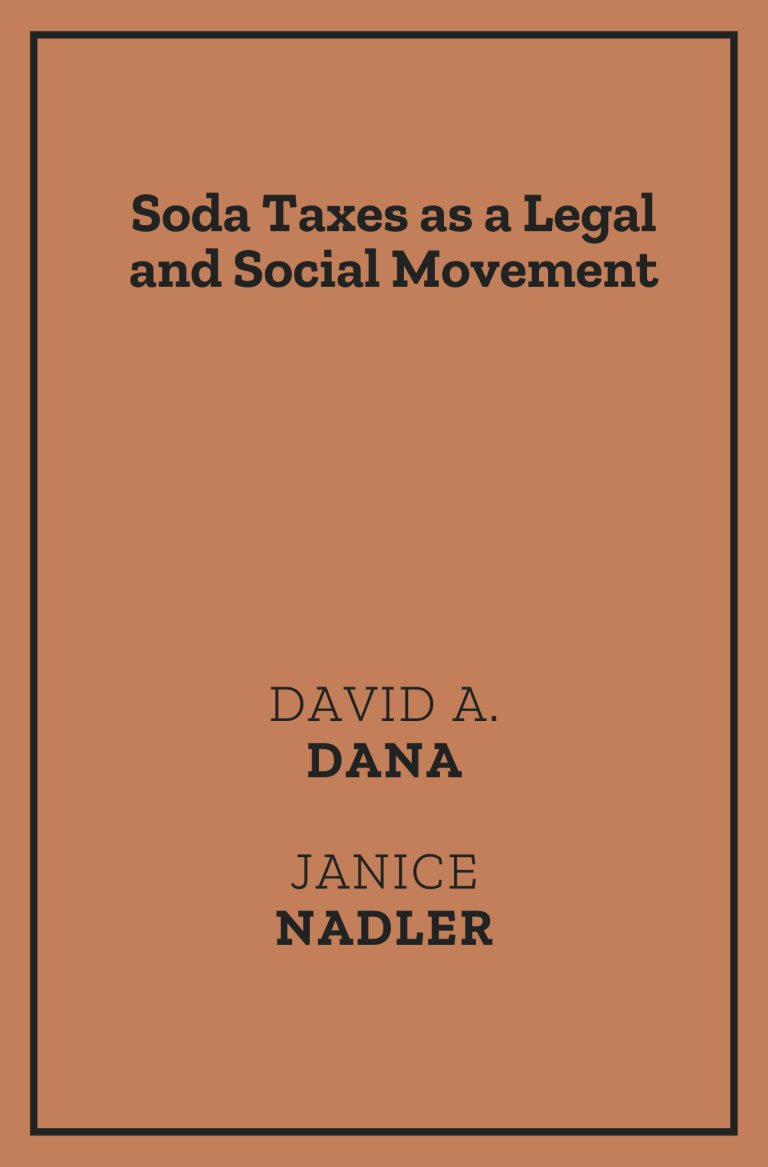From the Northwestern Journal of Law & Social Policy
In the last few years, several local governments have adopted new soda taxes. Other localities currently are considering adopting such a tax. In this Article, we consider whether soda taxes are becoming a more common local policy throughout the country — like local smoking restrictions — or whether, instead, they will remain a limited legal phenomenon. We focus on two potential obstacles to the widespread adoption of local soda taxes: (1) policy-based objections to the taxes as regressive and unduly paternalistic, which could undermine political support for their adoption at the local level; and (2) state preemption of local taxes, often achieved at the behest of the beverage industry. As we explain later, the principal risk of preemption vis-à-vis soda taxes does not come from the state courts in the form of decisions finding implied or field preemption, but rather from state statutes that expressly, unequivocally preempt such taxes. In almost all states, such express preemption would be considered lawful by the courts and would be effective in depriving localities of the power to impose taxes on soda.

